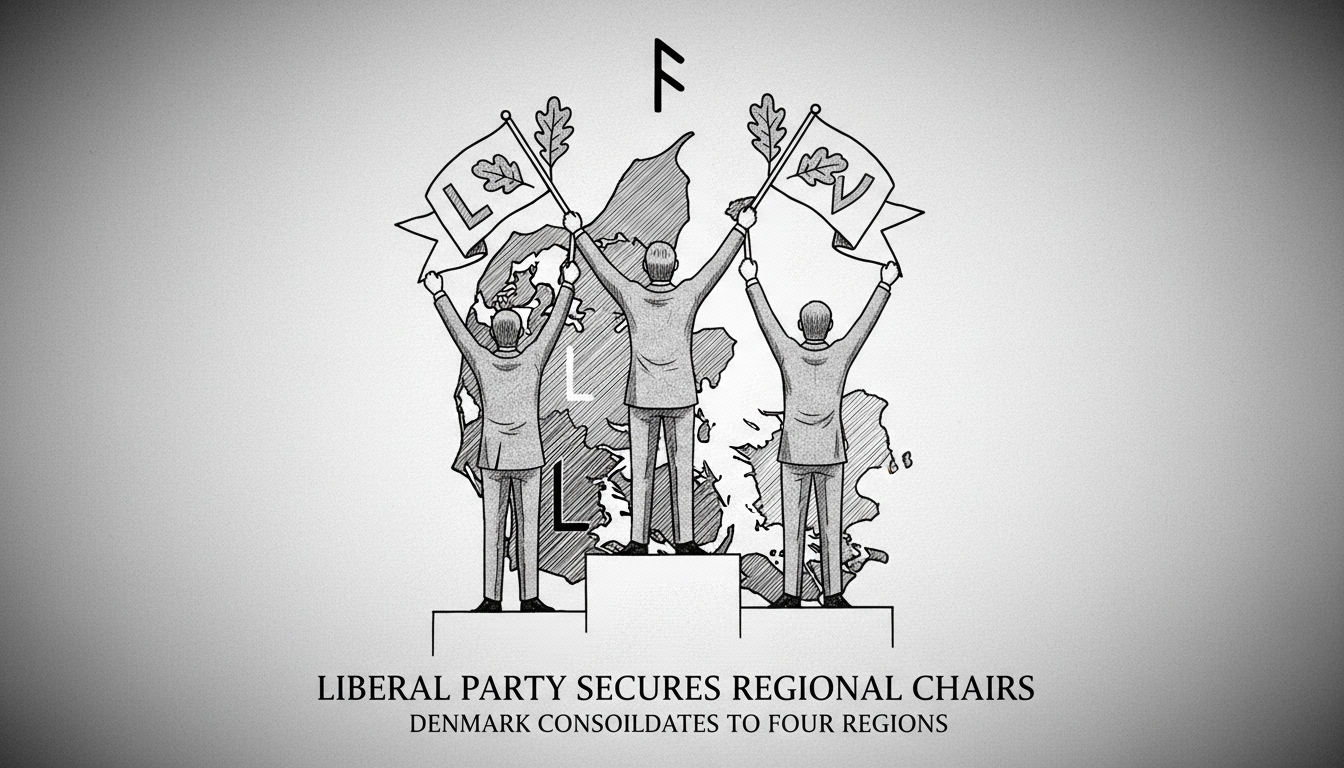Denmark's Liberal Party has claimed leadership positions in three of the country's four newly consolidated regions following Tuesday's regional elections. The political landscape shifted dramatically as five regions merged into four, with final appointments confirmed Wednesday morning.
Regional leadership now includes Lars Gaardhøj from the Social Democrats heading Region Østdanmark. He previously led the Capital Region before its merger with Region Sjælland. The Liberal Party secured the remaining three chair positions across Denmark's regional governance structure.
Mads Duedahl retains his position as chair of Region Nordjylland. Anders G. Christensen takes over leadership of Region Midtjylland from Social Democrat Anders Kühnau. Bo Libergren continues as chair of Region Syddanmark.
This political development represents a significant shift in Denmark's regional power balance. The Liberal Party now controls 75% of regional leadership positions despite the Social Democrats traditionally holding strong influence in local governance. The consolidation from five to four regions marks one of Denmark's most substantial administrative reorganizations in recent years.
Regional governments in Denmark manage crucial public services including healthcare, regional development, and public transportation. Their annual budgets total billions of Danish kroner, making these leadership positions critically important for policy implementation.
The Liberal Party's strong showing suggests changing voter priorities following recent national elections. Regional chairs wield considerable influence over healthcare spending and infrastructure projects that directly impact citizens' daily lives.
International observers should note that Denmark's regional governments operate differently than state or provincial systems in other countries. They focus specifically on healthcare administration, mental health services, and regional development rather than broader legislative powers.
This consolidation aims to streamline administration and reduce costs. The success of these mergers will be closely watched by other Nordic countries considering similar governmental reforms. The new regional chairs face immediate challenges integrating different administrative systems and maintaining service quality during transition periods.
Political analysts note the Liberal Party's regional success contrasts with their current opposition status in national government. This could signal stronger local support for center-right policies or dissatisfaction with national healthcare management. The regional election results may influence upcoming municipal elections and future national political strategies.
The new regional structure begins operation immediately, with chairs overseeing the complex process of merging staff, systems, and service delivery models. Their performance during this transition period will likely impact future regional reform discussions across Scandinavia.

